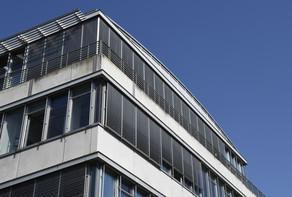Urban-river regeneration in post-industrial regions
Betreuung: Dr. Letizia Imbres (ROP)
Over the past 50 years, many regions worldwide have undergone deindustrialization. The process, implying a progressive shift from a manufacturing to a service-based economy, has been often accompanied by other symptoms of structural change, including advanced demographic change with aging and low birth rates as well as increasing socio-spatial segregation along ethnic and class lines. Moreover, regions historically dominated by heavy and natural resource-based industries have been left facing pressing environmental problems linked to water, air and soil pollution, which not only caused chronic health issues to the local population, but also posed severe threats to ecosystems. In response to these challenges, several regions have launched urban regeneration programs, which over time evolved into comprehensive and integrated visions and actions seeking “to resolve urban problems and bring about a lasting improvement in the economic, physical, social and environmental condition of an area” (Roberts, 2017). Regarding the environmental dimension in particular, since the 1980s there has been a growing concern for a wider approach to the natural environment, which consolidated in the 1990s with the establishment of the sustainable development model (ibid.). Similarly, river restoration has been promoted to minimize the negative effects of urbanization on waterways by “improving the health of a river, including improving ecosystem function and any related ecosystem services” (Speed et al, 2016). Emerging in the 1980s as a set of techniques aimed at addressing water quality problems, reducing flood risks and protecting aquatic species, in the last 15-20 years the concept has come to denote “an ‘effective integration of actions’ phase, where conservation and restoration measures are better integrated with broader social values and drivers” (ibid.). These include, for example, creating river access points, and expanding educational and recreational opportunities.
Recognizing the pivotal role played by urban regeneration and river restoration in revitalizing post-industrial regions, as well as the potential arising from their mutually supportive function in achieving sustainable development goals, the seminar will provide students with:
- A theoretical framework to analyze urban-river regeneration (URR) in post-industrial regions;
- A stimulating overview of URR typologies (e.g. water-based economic regeneration and water-based social regeneration) through extensive coverage of international case studies. Although the main geographical focus of the seminar is on old-industrial regions of Europe and North America, examples from other world-regions will be also examined;
- The opportunity to apply the knowledge gained to real-world planning problems.
Zeit und Ort
| Tag | von | bis | Rhythmus | Ort | Beginn | Ende |
|---|---|---|---|---|---|---|
| Fr | 10:00 | 13:00 | wöchentlich | GB III - R 214 | 26.04.2024 | 05.07.2024 |
| Fr | 10:00 | 13:00 | Einzel | GB I - R 301 | 14.06.2024 |
Literatur
There is no pre-requisite reading that needs to be done, but participants may find the following book chapters interesting and informative at a general level.
High S. (2022). Toward the Comparative and Transnational Study of Deindustrialization. In Berger S., Musso S. & Wicke C. (eds.). Deindustrialisation in Twentieth-Century Europe: The Northwest of Italy and the Ruhr Region in Comparison. Palgrave Studies in the History of Social Movements, Cham: Palgrave McMillan, 461-473. https://doi.org/10.1007/978-3-030-89631-7
Morandi B., Cottet M. & Piégay H. (2022). What are the Political, Social, and Economic Issues in River Restoration? Genealogy and Current Research Issues. In Morandi B., Cottet M. & Piégay H. (eds.). River Restoration: Political, Social, and Economic Perspectives. Hoboken, NJ: John Wiley & Sons, 3-47. https://onlinelibrary.wiley.com/doi/book/10.1002/9781119410010
Roberts P. (2017). The Evolution, Definition and Purpose of Urban Regeneration. In Roberts P., Sykes H. & Granger R. (2017, eds.). Urban Regeneration. 2nd edition, London: Sage, 9-43. https://doi.org/10.4135/9781473921788
Leistungsnachweis
Participating students will be asked to submit an individual essay at the end of the seminar. Requirement for passing the course is also evidence of active participation, which includes giving short presentations on the selected case studies, as well as making a positive contribution to group work and class discussions.
Bemerkung
Working language of the F-Projekt is English. The F-Projekt will be carried out in cooperation with the University of Liverpool.
Field work in the Mersey Belt will take place in March 2023. Travel and accommodation costs per participant are estimated to be 600 - 700 euros. It is intended to apply for travel grants. However, funding cannot be guaranteed.
Art der Veranstaltung
Blockseminar
Dauer: 2 SWS
Punkte: 4 Credits





